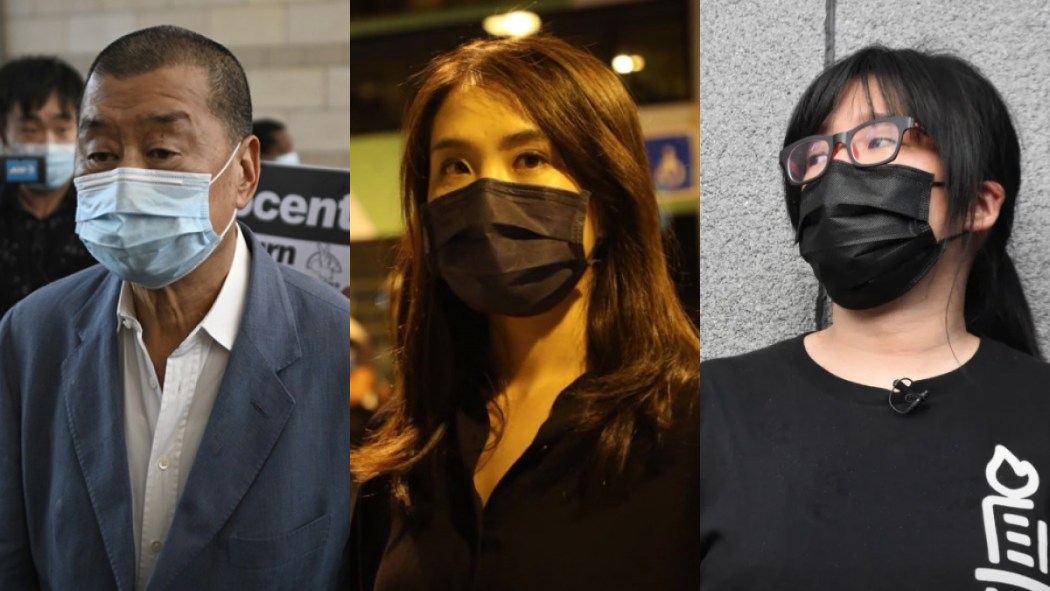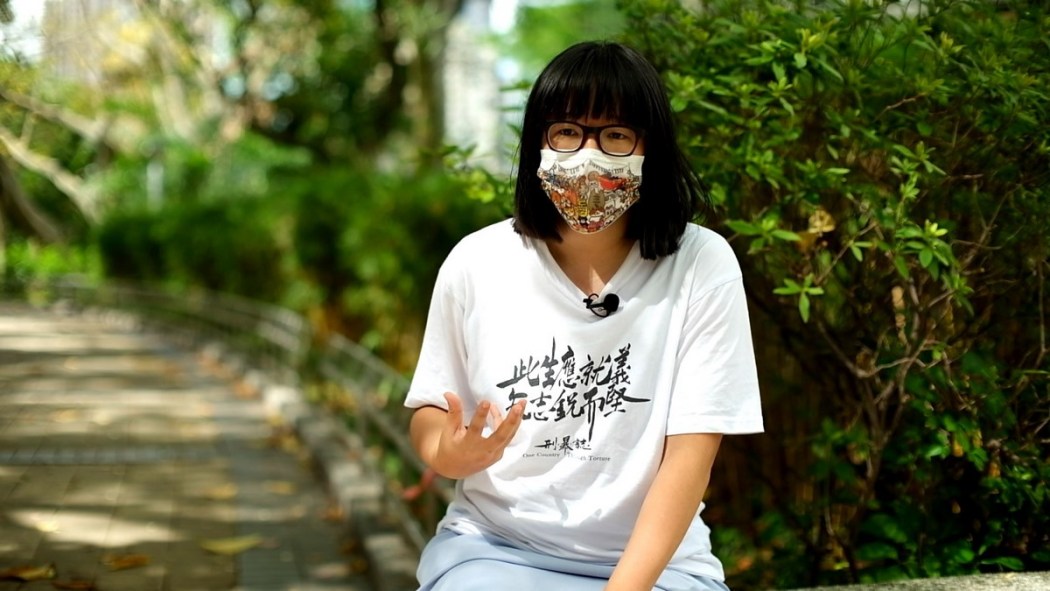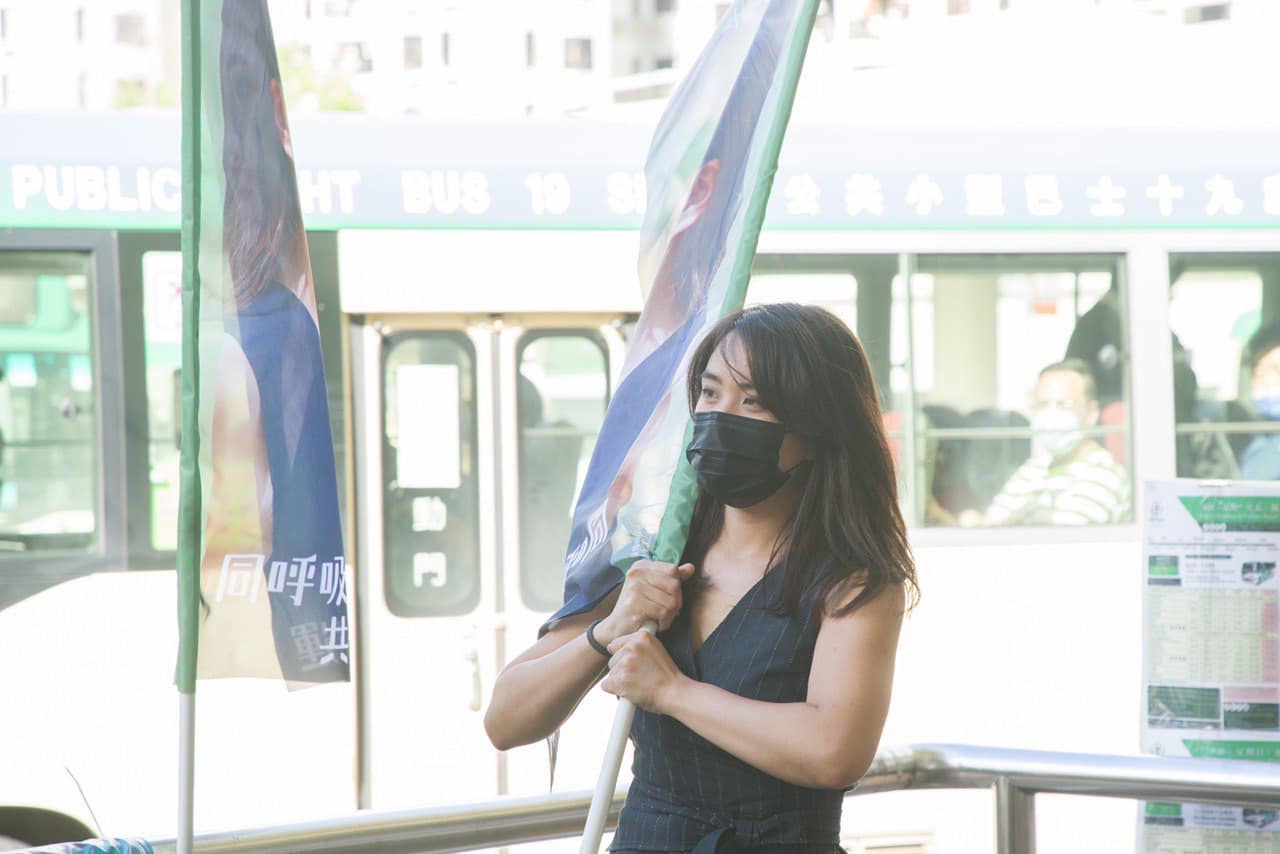Three Hong Kong democrats convicted of charges relating to last year’s banned Tiananmen Massacre vigil delivered mitigation pleas on Monday, asserting the memorial’s three-decade long history in the city ahead of sentencing in the afternoon.

The democrats included founder of now-defunct pro-democracy paper Apple Daily Jimmy Lai; barrister and vice-chairperson of Hong Kong Alliance in Support of Patriotic Democratic Movements of China Chow Hang-tung; and activist and former journalist Gwyneth Ho. They appeared at Wan Chai District Court in front of Judge Amanda Woodcock on Monday morning.
The media tycoon was charged with inciting others to participate in the event, while Ho was charged with taking part in the unauthorised assembly. Chow faced incitement and participation charges. The trio pleaded not guilty and were convicted last Thursday.

See also: A ‘pandemic of political repression’ – Hong Kong democrat Chow Hang-tung’s mitigation plea
Crowds of supporters, among them activist Grandma Wong, arrived early to line up for tickets to attend the hearing.
Peaceful assembly
Senior Counsel Robert Pang, representing Lai, delivered the tycoon’s mitigation plea. He said that a distinction should be made between unlawful assemblies that are violent, and those which are peaceful – which was the case with the Victoria Park vigil last June 4, which was banned on the grounds of Covid-19.
Pang added that Lai was at the Water Fountain Plaza outside the venue “for only 40 minutes.” He “did not say anything [and] did not go into Victoria Park,” he said.
“Given [Lai]’s minimal involvement, we submit that a non-custodial sentence would adequately reflect the gravity of his conduct,” Pang said, adding that – if the court orders a custodial sentence – it should run concurrently with his current jail terms.
The media tycoon is currently serving a 20-month jail sentence over three 2019 unauthorised assemblies, and he faces national security charges next year which could see him jailed for life.
Describing Lai’s humble beginnings as an immigrant from mainland China, Pang called the 74-year-old the “epitome of the Hong Kong success story.”

He added, “But what is somewhat different from the usual Hong Kong success story, he did not go on to make more and more money, he devoted himself to further another interest, in bringing to light matters otherwise may not be brought to light.”
In his mitigation plea, read out in court, Lai said: “If [commemorating] those who died because of injustice is a crime, then inflict on me that crime and let me suffer the punishment of this crime, so I shall share the burden and glory of those young men and women who shed their blood on June 4th to proclaim truth, justice and goodness.”
‘Decades-long symbol of resistance’
Chow, who was representing herself, called the court case not a trial against herself, but a trial of “31 years of tradition.”

For three decades, the annual vigil attracted massive, peaceful crowds to Victoria Park to commemorate the lives lost.
The Tiananmen crackdown occurred on June 4, 1989 ending months of student-led demonstrations in China. It is estimated that hundreds, perhaps thousands, died when the People’s Liberation Army cracked down on protesters in Beijing.
Hong Kong was one of the few places on Chinese soil where commemorations were tolerated, whilst information about the massacre remains heavily censored in mainland China.
“This decades-long symbol of resistance that has been forcibly put to an end, first through the present prosecution, then continued through ever-escalating measures by the authorities,” Chow, who served as vice-chair of the group, told the court. “We are different and decentralised, yet we act in solidarity, united by our conviction that the government’s blatant attempt at erasing history and suppressing activism must be resisted.”

“If this country still cares to maintain any resemblance of fairness, let’s put those murderers on trial instead of us. Let’s put those criminals behind bars instead of honouring them as our great leaders,” Chow added.
The criminalising of the vigil and the ensuing prosecutions, she added, was “one step in the systemic erasure of history, both of the Tiananmen Massacre and Hong Kong’s own history of civic resistance.”
Explainer: How Hong Kong sought to erase the memory of the 1989 Tiananmen Massacre
In September, members of the now-defunct Hong Kong Alliance in Support of Patriotic Democratic Movements of China – which organised the annual vigils – voted to disband following months of pressure from the government.
Ho, also representing herself, gave a shorter statement. “The sentence on me, however legally sound, will be seen as a sentence on every single Hongkonger in Victoria Park on the night of June 4, 2020.”

The former journalist dismissed her legal representative last Thursday in order to give her own mitigation statement on Monday. The activist told the court last week that she would require more time to go through documents given by the prosecution, but the judge said that she “put [herself] in this situation.”
Police ban
Last year’s Tiananmen vigil was the first time police had banned the annual memorial in 30 years. Citing Covid-19 social distancing rules, authorities said that holding the event would pose a risk to public health. But pro-democracy activists and members of the public defied the ban to light candles.
No such scenes were observed at Victoria Park this year, as authorities sealed off the park’s football pitches under public order laws and over 200 officers patrolled the vicinity to ensure that people did not gather.
Correction 15:30 – The trio in court last week had pleaded not guilty, as opposed to guilty as stated in an earlier version of this report.
Support HKFP | Policies & Ethics | Error/typo? | Contact Us | Newsletter | Transparency & Annual Report | Apps
Help safeguard press freedom & keep HKFP free for all readers by supporting our team

LATEST FROM HKFP
HKFP has an impartial stance, transparent funding, and balanced coverage guided by an Ethics Code and Corrections Policy.
Support press freedom & help us surpass 1,000 monthly Patrons: 100% independent, governed by an ethics code & not-for-profit.










